Iryna Sytnik has been working in journalism for 21 years. In 2014, she became the chief editor of the weekly newspaper Stepova Zoria. Unfortunately, the outbreak of war led to her team being dispersed across different regions of the country. This crisis also pushed the newspaper to the point of almost shutting down due to its difficulties. However, the situation took a significant turn when a grant, along with the involvement of a kindergarten teacher and a history teacher, came into play.
Diving Headfirst into Volunteering
Wednesday, February 23, was an ordinary day for the residents of Petropavlivka in Dnipropetrovsk Oblast. Iryna Sytnik, the chief editor of the weekly newspaper Stepova Zoria, had just approved the newspaper’s latest issue for printing and was calmly anticipating its release the following day. But when morning came, it brought with it a sense of dread.
— I learned everything from the news and began calling my sister – she lives in Dnipro. At that time, no one understood anything; panic had set in. The newspaper didn’t get published: logistics were disrupted, and postal services were closed… Until April, we managed to release a few more issues somehow, but then everything stopped. My employees were forced to take leave, and I was left alone,— recounts Iryna .
Iryna immediately embraced volunteering. As locals left town and newcomers from Donetsk arrived daily, needing housing, Iryna stepped in as a temporary volunteer realtor.
— Through acquaintances, we started searching for housing, writing announcements, and figuring out who rented apartments. I shared my phone number so that people could call me if they had a place to rent or if they needed a place to stay. I would get into my car and drive to inspect apartments,— shares our interviewee. — Later, I looked for refrigerators, mattresses, bed linens – everything. People sometimes only had their documents with them, nothing more.
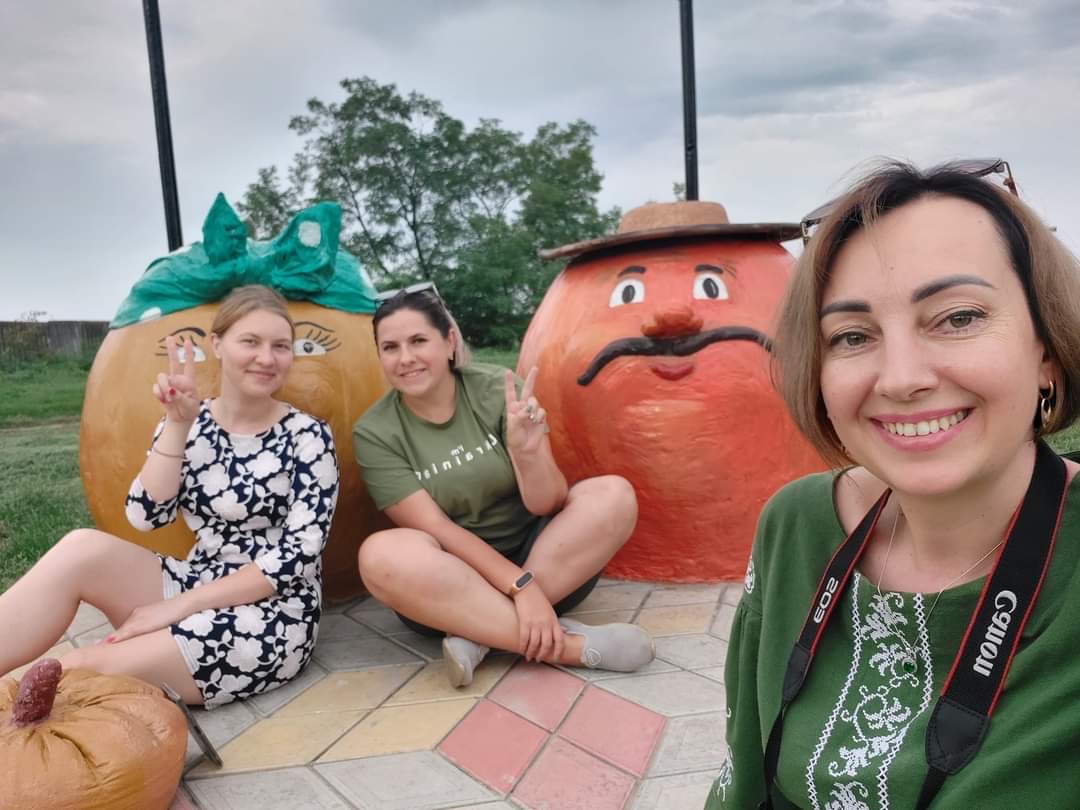
Not Just Empty Pots
Iryna turned an empty space near the office into a hub for volunteers, who brought supplies for newcomers. This let her help people and work on her computer. Her determination to revive the Stepova Zoria newspaper remained strong. This dedication wasn’t unexpected, considering she’d been with the editorial team since 2001 and couldn’t envision life without the newspaper.
— I searched for grants for the newspaper, and I finally found one! I applied, and it got approved. But the team was no longer there. Where could I find journalists? I was thinking about this while also developing a budget,— the editor recalls.
Soon, a young woman visited the volunteer hub. Irina assumed she was a newcomer from the displaced population, seeing an unfamiliar face.
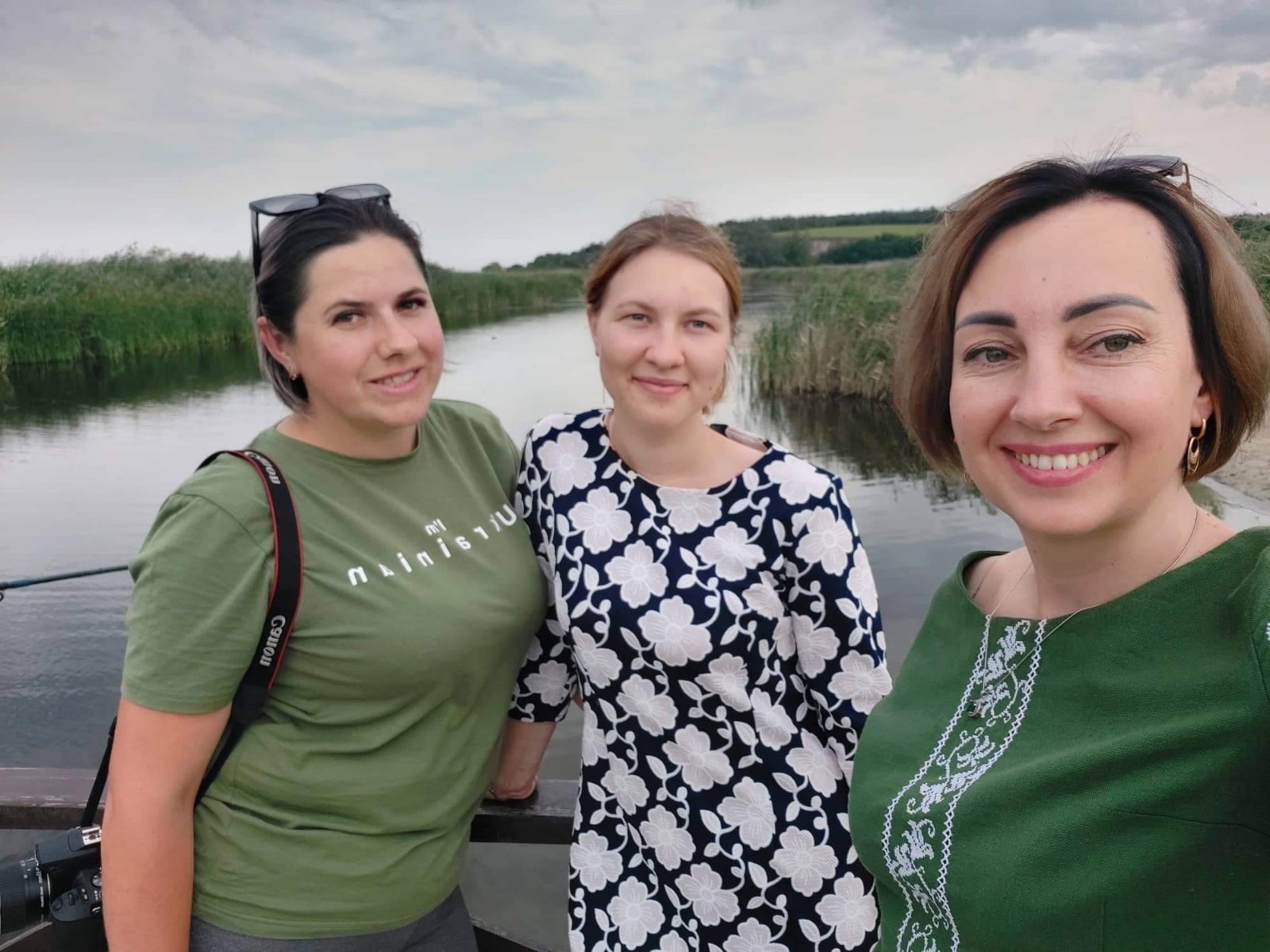
— A young woman approached and inquired about the volunteer center and how she could help. I saw her – young, perhaps seeking employment. I always say that a journalism education can be there, or it might not. Writing can be learned. So, I asked her, “Would you like to work on the editorial team? She said she would think about it and disappeared,— recalls Ms. Sytnik with a smile.
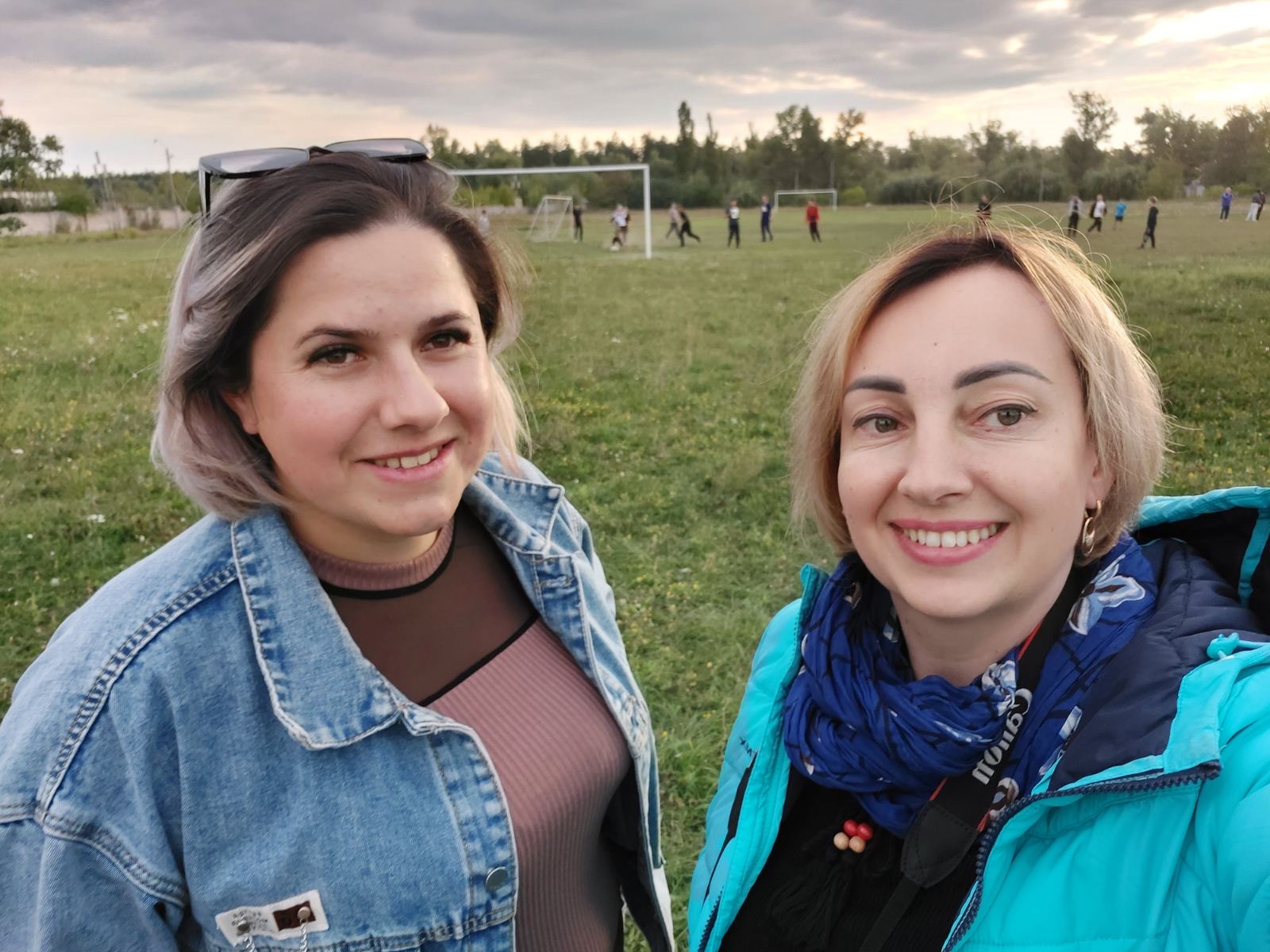
But after a few days, the unfamiliar girl to whom Iryna had offered a journalistic job returned to the editorial office.
— Dariya Yudina, a displaced person from Avdiivka in Donetsk Oblast. She’s a student at Sloviansk Pedagogical University, studying to become a kindergarten and primary school teacher. Her family hadn’t intended to leave their city. They were accustomed to shelling and even built a bomb shelter. But when their area was struck by ‘grad rockets,’ they swiftly fled the city,— the editor recounts.
They settled in Petropavlivka because Dariya’s mother found work at the mine there. And when Dariya received an offer to try her hand at journalism, she admitted she was afraid.
— The offer was unexpected. Plus, this would be my first job. I was afraid of the responsibility: I didn’t know anyone and found communicating with people challenging. But then, I discussed it with my family at home and decided, why not try it?— says Dariya Yudina.
Initially, it was challenging for Dariya to adjust to her new life and job. But with the support of her parents and the experienced editor Iryna Sytnik, she managed.
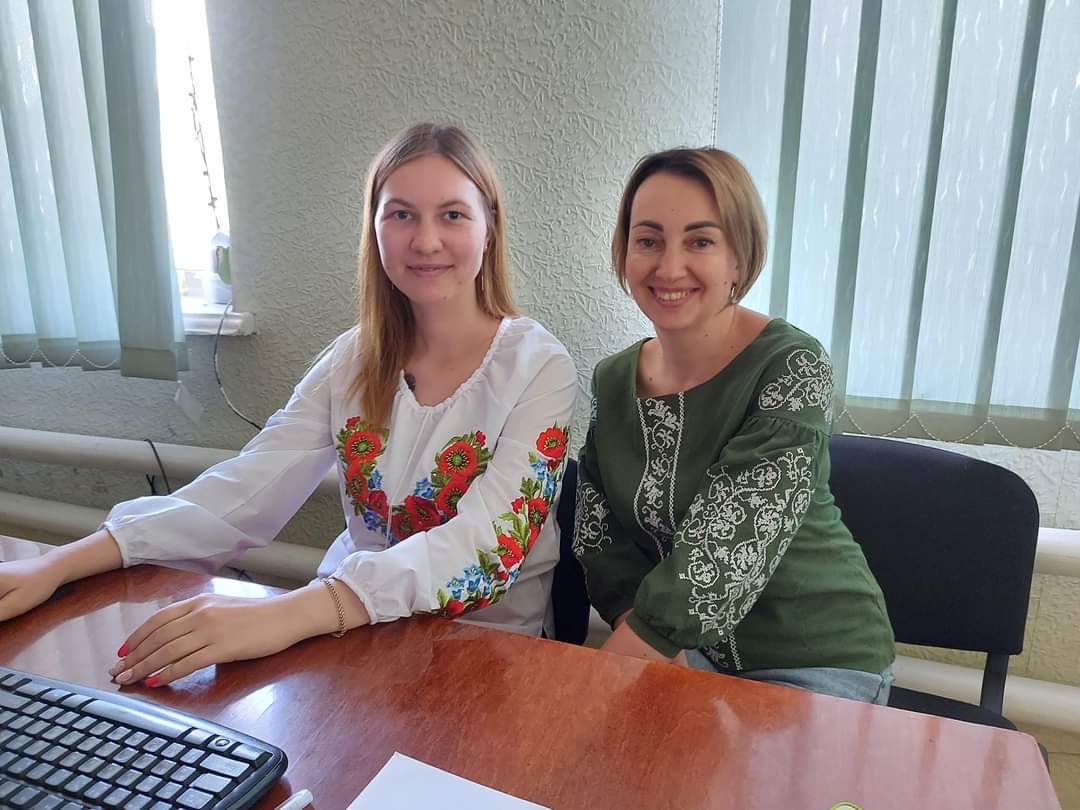
— I used to visit the editorial office while they were reviving the printed newspaper. Irina handled writing and layouts, and I observed and learned. Then we began writing news jointly. By June, I had become skilled at layouts, which became primarily my task,— says the emerging journalist.
Over time, Dariya developed her ability to craft concise news articles and capture photographs. Eventually, she completed her initial independent reportage.
— Her first report was about a military serviceman’s wedding. She managed the assignment admirably, crafting eloquent prose. For newcomers, this can be a challenge, but she excelled! I was impressed. Currently, Dariya composes reports showcasing expertise in ‘green’ topics, such as winter preservation of eggplants and zucchinis, and offering diverse life advice,— commends the head editor of Stepova Zoria weekly.
Simultaneously, along with publishing the newspaper, Iryna and Dariya managed a Telegram channel and maintained the Petropavlivka.City website. In short, the workload was significant, and they were running short on hands, energy, and time. That’s when their assistant, Nataliya Madonova, came into the picture.
— On April 21, we left Melitopol, occupied since February 24. I’m not originally from Melitopol but from the nearby village of Myrne. However, the Russians also occupied it. My husband is a soldier. When the war began, he was in the combat zone. I was alone with our child. In the early morning of February 24, I couldn’t sleep; there was an unsettling feeling. Then the dogs started barking loudly. I thought I heard distant explosions, but within minutes, they echoed near our buildings,— recalls the displaced woman.
Nataliya is a history teacher, but back in 2014, she learned photography. Now, having relocated with her 5-year-old son from the occupied Melitopol region, she was searching for work.
— She came and introduced herself. She said she’s a photographer. We have a Telegram channel, and we really needed an extra pair of hands. So, Nataliya started managing our Telegram channel, Instagram, and Facebook pages. Now she’s even writing content for our website and editing videos. In other words, she’s not just taking photos; she’s expanding her skills and improving daily. I might repeat myself, but you can be a journalist even without formal education. Some people are born with it, but you need the desire and a persistent work ethic. It’s not always about those with the highest qualifications,— Iryna explains.
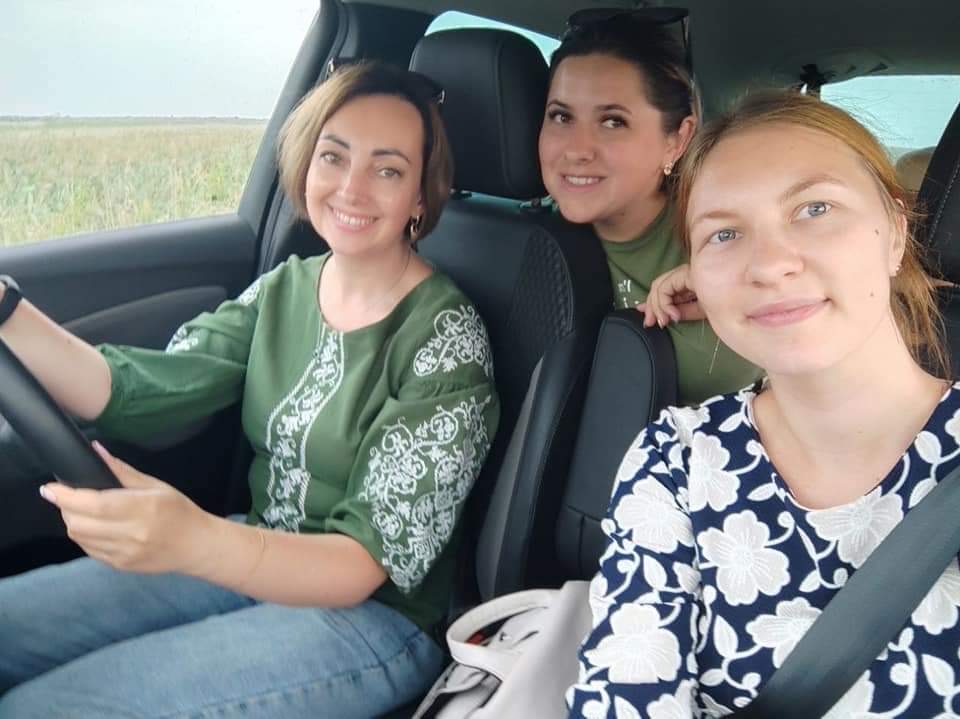
“Very unfortunate if Dariya and Nataliya leave. I wish they could stay.”
These young women not only brought life to the editorial office but also prevented an “information deficit” in Petropavlivka during wartime.
— Our website’s audience has grown. The girls complement each other and can go on assignments together – one conducts interviews while the other takes photos. It’s a vast region with many villages. We cover various events. I introduce them to the locals so that people know who’s creating content for them. Currently, our focus is on stories about volunteers, providing medical assistance, and the real estate market. Many displaced people are interested in housing. Residents from Donetsk and Luhansk don’t want to move far, so they stay with us,— adds the chief editor.
The workload for this creative team is truly boundless. The only thing Iryna tries not to dwell on is parting ways.
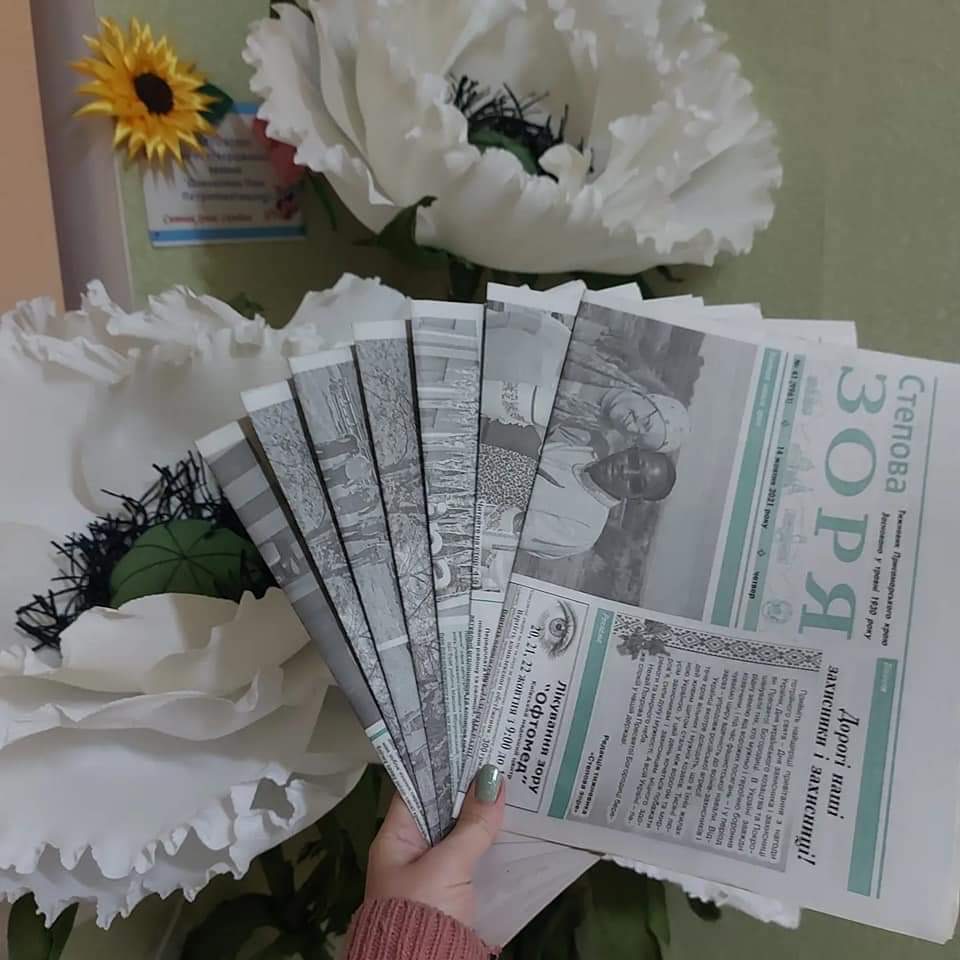
— I want the girls to stay with me in the team. It would be a significant loss if they leave. I’m trying not to think about it. We’re approaching victory together now, and the future will tell. Maybe we’ll marry Dasha off here, and she’ll stay,— says Iryna Sytnik, who now knows that predicting the future isn’t wise. The first step is to await Ukraine’s victory. And afterward… Each person will decide their path. But that will be an entirely different story.
This series, titled Executed Free Speech, is created as part of a project Drawing Ukrainian And International Audience’s Attention To Serious Violations Of Human Rights And Crimes Against Journalists And Mass Media By The Russian Federation, which is performed by the National Union of Journalists of Ukraine, with support from the Swedish non-profit organization Civil Rights Defenders.
JOURNALISTS ARE IMPORTANT. Stories of Life and Work in Conditions of War is a cycle of materials prepared by the team of the NUJU with the support of the Swedish human rights organization Civil Rights Defenders.
#CRD

 THE NATIONAL UNION OF
JOURNALISTS OF UKRAINE
THE NATIONAL UNION OF
JOURNALISTS OF UKRAINE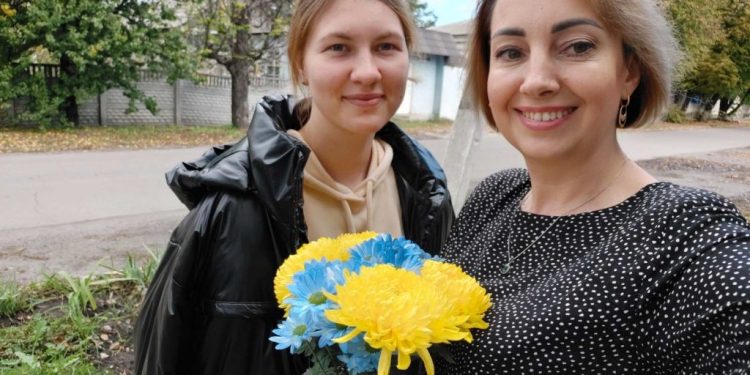
















Discussion about this post